
Do you like tales of cat burglars?


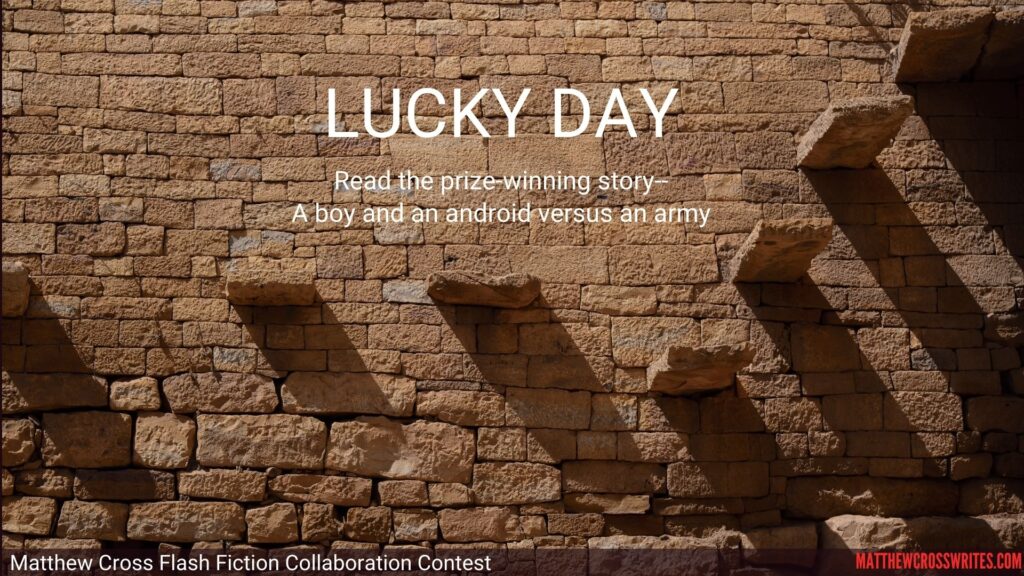
The winner of the Matthew Cross Flash Fiction Collaboration Contest is
I started the story below. See how S. Songweaver starts after the red line and takes us to an action-filled and hopeful ending.
Ophir woke in the dark to the thick, warm smell of cabbage cooking.
The lights automatically turned on as he rose from bed. On Hulm, where the sun shone brightly most days, they never lacked for electricity. Baba had scavenged solar panels for the roof and, through constant care, kept the tricky wiring running. To Mama, he would say, “Habibti, as long as you are married to me, light shall always shine on your beautiful face and you shall feel the electricity of my love.”
“Habibti,” Mama would say with a small smile, “Light is plentiful on Hulm. Are you so generous you would also give me air to breathe and ground to walk on? I would much prefer a larger cistern.” But when Mama said it, she said it with such a soft smile and soft eyes that Ophir knew it was a joke.

Ophir snapped on his toolbelt and ran to the kitchen. Baba was making fried cabbage rolls for Lucky Day.
It was still dark outside, but Baba had been up for hours rolling out and cutting the dough. Baba only made vegetarian rolls. They cost less to make, but Ophir could only sell them for half the price of rolls filled with goat meat or even eggs. “Habibti, we don’t eat meat. Some of our friends do and some do not. But we will make sure our friends that don’t have a special treat for a festival day.”
Ophir helped fold the rolls as Baba began dropping them into the hot oil. The first batch always came out wrong and Baba let Ophir eat as many as he wanted from the first batch. Ophir crunched the crispy roll and hot cabbage juice flooded his mouth. The fried dough burnt his tongue.
Baba laughed as Ophir rolled the bite around his mouth and sucked in air, trying to cool the hot dough. Fried juices dripped from Ophir’s lips, and he laughed, too. “Couldn’t wait for it to cool, eh, Habibti?” Ophir shook his head, giggling.
It was going to be the best Lucky Day ever!
Most days, Baba was a mender and Mama was a weaver. Mama worked her looms in the back room where the good light shone in through the window. Baba sat at the counter on the front of the house, repairing small machines, family heirlooms that had cracked, and sometimes even favorite pairs of shoes. He also sold small machines and odds and ends that he had repaired but never been paid for.
It was going to be the best Lucky Day ever!
At sunrise, Mama produced another surprise. She had made a new apron for Ophir, a real shop apron made of sturdy material like Baba’s. And it had two large pockets on the front! Ophir donned the apron over his toolbelt to protect the tools. Mama cinched the strings and tied them behind his back. “You look just like your Baba, Habibti,” Mama whispered.
Baba and Ophir took up their stations at the counter. Baba sold cabbage rolls and Lucky Day ribbons, made by Mama, to the growing crowd. Ophir had grown tall the past year and he could finally see over the counter without standing on a stool. He handed out rolls while Baba handled the money.
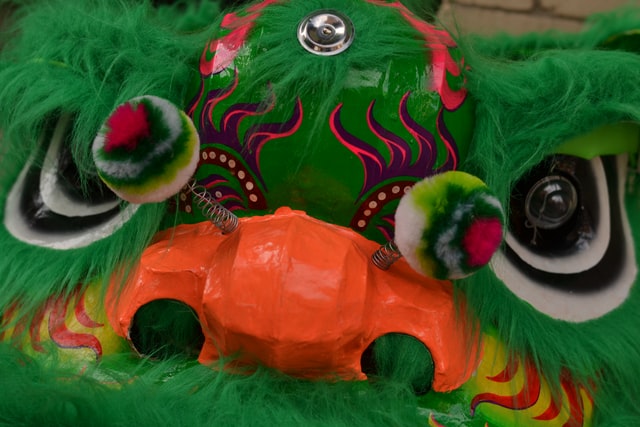
The parade wound through every street of the village on the way to the central square. “Habibti, come look,” Baba called to Mama. “Come! Come! This year, they have made dragons!”
Mama came out from the kitchen, where she had been cooking more cabbage rolls. Baba wrapped his arms around Mama as they watched the dancing figures weave drunkenly up the dusty street. Ophir climbed up on the counter to see over the crowds lining the street. He did not see any dragons. Only men carrying two large, wobbling dog heads and lines of men and women behind carrying streamers. Then came the usual figures wearing headdresses of gold in the shapes of dogs, cats, camels and unicorns.
When the crowd dwindled, Ophir took his tray and followed the crowd to the central square. There, the Eumda would make a speech and declare the day a holiday, even though everyone already knew that. The school was closed and the richest children in the village would buy the treats and play the games lined around the square. The poorest children would run and play, even if they could not afford the games or sweet treats. And, if they could steal a treat, they would.
None of the child thieves bothered Ophir. Only adults seemed to care for the cabbage rolls. Ophir circled the square, trying to make his voice heard over the adult vendors and the gleeful chatter surrounding him. Baba and Mama let him spend the whole day in the square. When his tray and the insulated box beneath were empty, he ran home and bounced on the balls of his feet, eager to return to the square, as Mama filled the box with steaming rolls. Baba counted the coins in the box. “Habibti, you have done well. Even better than last year. We are blessed by Lucky Day.”
Encouraged, Ophir ran back to the square. This time, he ignored the games and he zeroed in on the older adults, urging them to buy his wares and buy one for a friend. If he did well, perhaps they could buy Mama a new cistern. One without a weeping crack. And if he sold all the rolls, he could leave the tray at home and return to the square, free to run and play with the others.
Business picked up at midday, and Ophir even sold a few rolls to his classmates for their lunch. Mama had run out of dough and Ophir’s box was only half full. He kept counting the rolls after every sale, counting down to when he could return an empty box with coins at the bottom to Baba.
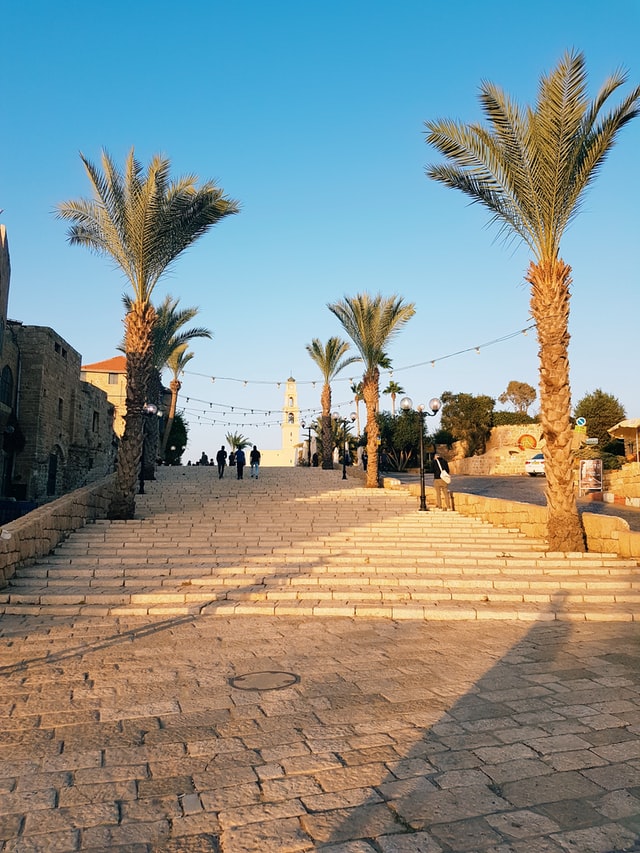
He stood in the shade of an alley, counting the rolls one more time when he heard the popping noises. At first, he thought it might be firecrackers. He looked up, eager to see the bright, sparking colors. Instead, a crush of people ran to the middle of the square. Then he heard gunfire. He turned to run down the alley, but there was already a soldier coming up the far end. Thinking of the coins, Ophir tried to run past the soldier, but the alley was too tight.
The soldier threw Ophir to ground. The man dumped the last of the rolls on the ground and scooped the coins into his pockets. Tears sprang to Ophir’s eyes. His whole family had worked so hard for that money. He rushed at the soldier and found himself suddenly sitting on the ground, his eye exploding in pain. The soldier laughed harshly and pushed Ophir into the square with the muzzle of his rifle. Soldiers with guns ringed the entire square.
Ophir was herded into Alththania’s pawn shop with dozens of villagers, mostly adults. The villagers were crying and screaming, but still they instinctively sorted themselves out. The men pushed the women behind them and faced the soldiers at the door. The women pushed the children to the back of the store, hushing and holding the smallest ones. Ophir was almost 13, but he was short for his age and he found himself at the back of the store with the children too big to carry.
He was afraid, especially when he heard more gunfire erupting outside. But it was distant, coming from other parts of the village, not the square. Ophir closed his eyes and prayed for Baba and Mama. Baba was smart. At the first sign of trouble, he would have dropped the swinging wood door that also acted as the stall’s awning and latched it tight. Soldiers would want nothing with a mender and his second-hand goods.
After the soldiers closed the door, the men in the front huddled together and spoke in low voices. Some of the women cried, and some of the women comforted those women and the children. “It’s OK, Habibti. Everything will be fine,” one woman said, rocking a child in her lap.
“It’s a cleansing,” one young man said very loudly. “It’s happened elsewhere. And now it’s happening here. We’ll never …”
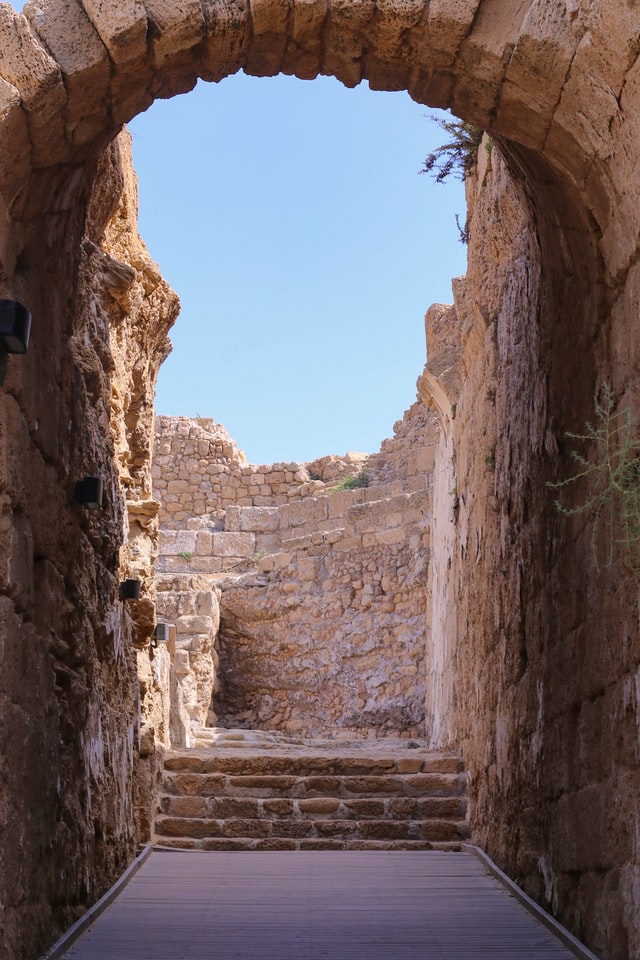
The other men shouted him down, but their frenzied talk continued in a louder rumble.
If Ophir could just make it home, everything would be alright. But for security, Alththania’s shop had no windows. That had been the soldiers’ first mistake. Everyone knew that Alththania bought and sold gold, silver, and the occasional jewel. The glass case behind Ophir was filled with gold necklaces and rings and even a few ruby rings. It was the closest he had ever been to true wealth. But Alththania also bought and sold guns, everything from slug slingers to pulse rifles.
The soldiers had left the jewels, but they had removed the guns from the shelves. The wall behind the main counter had nothing left but empty shelves and wire hangers. But even Ophir knew Alththania kept some things hidden beneath the floorboards.
Ophir could not hear the details of the men’s talk up front, but it was clear there were two camps. One said to wait for the Eumda to sort things out, and the others were suggesting they do their own bargaining, purchase their way to freedom. “We are a poor village,” said a thin man with lined cheeks. “They will soon see that and be on their way.” That brought on doubtful grumbles.
Ophir took stock of his surroundings. There was a door to Alththania’s backroom. He knew all the village alleyways and there was no back door to the pawn shop. But he wanted to get away from the crying, snot-nosed children crowding around him. He wanted to stretch his legs.
Quietly, he crawled around the counter. Luckily, the room was not locked and Ophir crawled inside and latched the door behind him.
It was a small, cramped space with a desk in the front corner and a large safe, shelves on three walls and a large row of shelves running down the center of the room. Curious, Ophir examined the shelves. Like his father’s shop, it was filled with machinery, but expensive machines his father would never be allowed to work on. There were kitchen mixers, microwave ovens, and pulse massagers. They were not new, but they were not dusty or dented like the machines in Baba’s mending shop. Some even came with their own cloth or plastic covers.
In the far corner, where the automatic lighting barely reached, Ophir found the android. The head, torso and arms were all in one piece, sitting drunkenly on a stool. The legs were on a nearby shelf. They gleamed metallically in the dim light.
Ophir looked guiltily at the door, his fingers already itching to touch the android.
His father would have given a day’s wages just for five minutes with the android, working or not. Baba and Ophir had even talked of building their own android one day, but they all knew it was a dream. Like when Mama would buy one lottery ticket and they would take turns holding the ticket and saying what they would buy with the winnings.
Ophir looked guiltily at the door, his fingers already itching to touch the android. The door was still latched and he could not hear anything from the main room. He had more than five minutes. He might have hours and hours.
After examining the parts until he grew tired of standing, Ophir took the pieces to the desk to examine them more closely under the bright, white light of the wall lamp. All the connections seemed sound and clean. Ophir could not understand why the android had even been disassembled.
He only looked guiltily at the door once more before pulling the tools from his tool belt. He set to work, only pausing when he smelled smoke. The smell was very faint but acrid. Not the smell of hearth fires or cooking fires. He heard rumblings from the men in the main room, but there were no screams. He decided the fire must be from another part of the village.
Ophir lost track of time. Only when the start-up sequence began did he finally sit back with a sigh, rubbing his eyes. He heard a murmur from the main room and a strange noise.
There were muffled screams followed by gunshots and whimpering. Ophir swallowed as the android hummed to life. Shuffling could be heard in the next room followed by REE-TA-TA-TA-TA-TA-TA. The sickening noise of gunfire.
Ophir instinctively crouched behind the bot that was still calibrating, making himself as small as possible in a corner of the room until the noise outside stopped.
Nearly an hour passed before the silence in the room was finally interrupted by the shiny, metal android stretching and standing. It whirled as its face displayed the word “Hello.”
Ophir was hiding his face in his arms. He did not notice the android’s message until the android poked him.
“Hello. I am Bot A1M.”
The blue words appeared across the bot’s square faceplate.
Ophir swallowed and asked “Hello, Aim . . . . Is it safe?” unsure if the android would know such things.
“There are no life forms other than you here,” the android updated.
Ophir nodded, then remembered what the man had said about a cleansing.
“Baba!” he blurted out.
“I am not your Baba,” The android displayed, trying to be helpful.
“No, not you.” Ophir carefully approached the door and placed his shaking hand on the knob.
“I sense the field beyond here is not good for a child to see,” the android offered on its faceplate. “Although my parental restrictions have not been turned on.”
“I have to get to my family. Is it safe?” Ophir asked.
Dots appeared across the android’s face as it considered. Then, after a moment, it displayed “Yes. The nearest life form is about one half kilometer away. It seems the gunfire has ceased.”
Ophir swallowed. “Baba and Mama are barely outside that range.” He opened the door and carefully walked into the other room. Ignoring the acrid, metallic smell, he tried to pretend the people were only sleeping as he edged to the exit.
As Ophir reached the door, the android lingered behind, shuffling its feet hesitantly at a floorboard.
“Is that something that might help?” Ophir asked.
“Yes.” Carefully, the android lifted the plank of wood to reveal a gun as big as Ophir’s torso.
Ophir’s eyes went wide. “Do you know how to use that?”
The android picked up the weapon in response and seemingly armed it.
“Yes.”
“Okay, Aim,” Ophir said. “Can you come with me to find my family?”
“A1M priority has been updated to protect and serve.”
The bot readied as the boy opened the door to the dusty air outside.
Together, they braved the street towards home.
I hope you enjoyed this piece of flash fiction that S. Songweaver and I wrote together. She’s a great collaboration writer!
If you enjoyed S. Songweaver’s prize-winning ending, please make sure and share some kind comments below.
Be stellar!
Matthew Cross
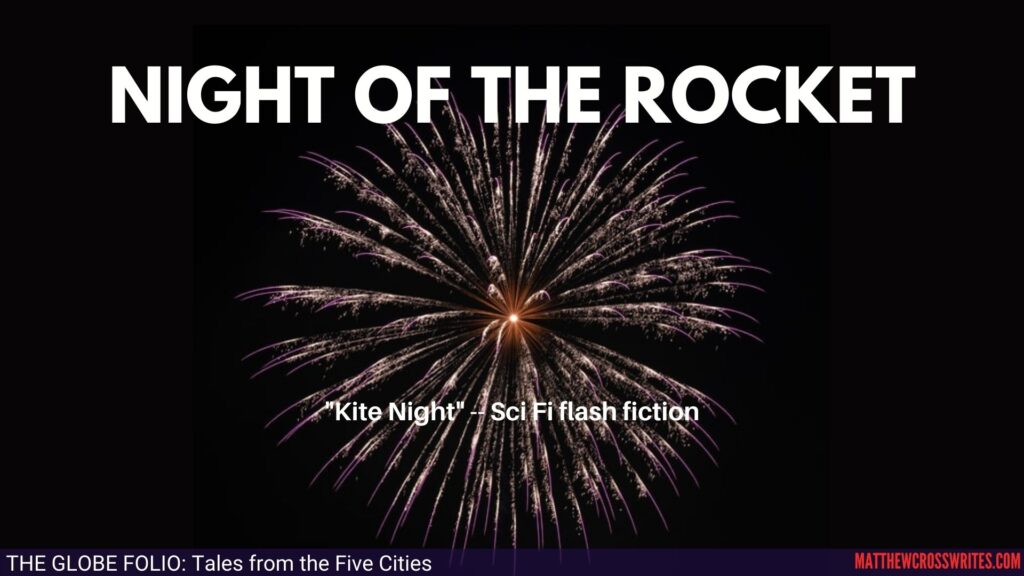
[EDITORS NOTE: Below is the final story of Act I of the Globe Folio, a set of six stories set on a single planet but written by four authors. At the bottom of this story are links to the other five stories in Act 1 and all the stories we’ve written so far in Act II. And there will be more to come. I promise!]
The United Polity Ship Pacifica, a Naval carrier, slid towards the planet, riding down the bent space of the sun’s massive gravity well. Ward was a Marine, not a scientist, so she knew the general theory but not exactly how the Slide Engines worked. The details were classified anyway, one of many strategic advantages tightly controlled by the Polity’s military. With such massive military advantages, the war should have been going better. Raised by the Polity Navy on an academy ship, there was no one more loyal to the Polity of Unified Planets than Capt. Ward. But she knew to keep her doubts to herself.
Shipboard duties during a Slide for a Marine were light, so Ward kept her Marines busy with constant training, surprise drills and study. To keep the peace with the ship’s crew, Marines also volunteered for KP, swabbing decks and other scut work, to show they weren’t just freeloaders. It was all in the SEAL Leadership Manual. “Stick to the Manual, Ward, and you won’t go far wrong,” said Commander Argyle, when pinning on her captain’s bars.
“And when the Manual doesn’t cover it, Commander?” she remembered asking.
“SEALs were born and bred for off-Manual, Captain. Achieve the objective, by any means necessary.”
The SEALs have a lot of slogans. So many it’s a common joke in the Navy. Achieve the objective, by any means necessary, was one. It was not one of the cleverest or one of the most uplifting. It did not summarize what a SEAL was, but it cut straight to the heart of what a SEAL did.

Ward was in the Officer’s Mess, setting the table for Cookie, the chief steward. Technically, officers weren’t supposed to do scut work, but Ward found small ways to lighten the load or at least lighten the mood when shipboard. She didn’t mind. It reminded her of simpler times aboard the U.P.S. Euphorion, her first academy ship where all the students did whatever needed doing. Cookie came out from the galley and announced that the planet was within visual-light range.
Ward calmed the butterflies in her stomach and laid the last of the fine silver. She was proud her hands did not shake, not noticeably anyway.
“Wanna take dinner in your quarters, Captain?” Cookie asked.
“Yes, please,” Ward said gratefully. Cookie was shipborn and cared little for planets. But Ward was planetborn and raised until her academy years. She lived in space and had the bug for exploration, but landing on a planet was the closest she would ever come to returning home.
In her quarters, Ward turned on the high-tech holo equipment installed for her to review battlefields in space and on the ground. She had already been using the high-radiation scans to get the lay of the land. And her intelligence lieutenant had gleaned all he could from the planet’s communications transmissions that traveled this far. It was dimmed little.
These people clearly had no interest in contacting anyone offworld, which was very strange. What kind of backwards rock was she going to? But when the brilliant blue marble appeared in the middle of her quarters, she threw herself onto her berth and stared at it. Even at maximum magnification, even using AI estimations to fill in the image, it was no bigger than her thumb. When she cut the planet’s yellowish-white sun from the image, the planet looked tiny and fragile floating in the darkness of the room.
What kind of backwards rock was she going to?
She watched the planet, really just a half-sphere view, revolve in the sun’s light on the live feed as she took her dinner. Cookie delivered her meal in person, which made her blush. “Cookie, you shouldn’t play favorites!”
Cookie waved a large, pudgy hand, and tucked his thumbs into his straining apron strings. “You work as hard as any crew on this bucket and I seen you doin’ for favors for anyone and e’ryone. If Cap’n Ward wants to watch a blue rock spin here in the privacy of ‘er quarters, ‘en Captain’s P’rogative.”
“Captain’s Prerogative is a right of a ship’s captain, not a Marine captain,” Ward said, trying to reprimand Cookie with a stern voice but failing.
“Cap’n’s P’rogative,” Cookie said again and closed the door.
The food was excellent, of course, but Ward found herself picking at her food and letting it grow cold as she watched the slowly spinning blue orb.
First Sight was a tradition in the Navy. Unless the ship was engaged in battle, most of the crew was given light duties for as much as 20 hours. It was a sound policy. Even when sliding, the briefest interstellar trip took more than a year. And you couldn’t keep planetborn away from the viewscreens anyway. So ship captains gave a First Sight holiday. And when the holiday ended, they used the natural rise in energy to finish the many chores remaining before attaining an orbit.
Ward tried to enjoy the first hours of the holiday, but her mind kept reviewing her orders and her last transmission from 3Q Fleet Command. They had been pretty simple. Simple was good. But usually orders were very detailed, giving a company-grade officer little to do but review the extensive instructions and implement them.
Here it had been the opposite: Secure the planet against the enemy and begin extraction of resources vital to the Polity Navy. Destroy any resources of use to the enemy but not of use to the Navy. It was vague; dimmed-stars vague.

She had discussed it with Capt. Exeter, the ship’s captain, of course. He was polite and gave a few vague suggestions. Eventually, Ward quit asking. The answer was clear. No one knew anything about the planet or its resources. As the commanding officer of the landing, she would have to figure out on her own what resources needed extracting and what needed destroying.
There would be tough choices ahead. Ward had made tough choices before and she would have to make them again. That’s the price of a captain’s bars or any officer rank. But she didn’t have to like it.
So far, the butcher’s bill had been light. In three years of the Slide, they’d only had two engagements. The first had been a small skirmish not far out from Nestor, a Polity hub on the edge of Polity space where Ward had joined the U.P.S. Pacifica. That space, so close to a Polity stronghold, should have been cleared. Such was the state of the Polity in the Third Quadrant. No one spoke of it, or not in more than whispers, but loyalty to the Polity had been shrinking in the quadrant ever since Ward had graduated from the academy.
The skirmish had only lasted a few hours. Barely enough time for Ward and her Marines to get involved. They had loaded into transports for boarding the enemy ships but had been recalled after the enemy broke off.
Capt. Exeter had harried the departing ship with a long stream of salvos meant to provide cover for the returning transports. But the fleeing ship had fired off a few parting shots and managed to hit one of the transports. Twenty dead, all told: three Marine squads, a Navy pilot and a Gunner’s Mate.
Four fighters zipped out immediately to harry the pirate ship.
That would count against Capt. Exeter’s butcher’s bill, not her own, as it happened while the Marines were in a Navy transport. Not that it mattered to Exeter or Ward. The Navy kept track of such things, in case a court martial was necessary. But unless you were a complete vac out, nobody reviewed the figures, especially during times of war. What mattered was that personnel were lost. Friends and friends-of-friends. But there was always a butcher’s bill to be paid. Officers had to pay it, learn any lessons that could be learned and move on.
The second engagement had been more serious. Two years into the Slide they had run across an armed ship attacking a merchant vessel. Afterwards, opinions among the ship’s officers varied on whether the crew of the armed ship were seasoned pirates or just opportunists. But everyone agreed this was Polity space and the Polity Navy had the duty to stamp out piracy, even in contested Polity space.
The pirate ship and its target had been far off the Slide vector, so the best Capt. Exeter could do was reverse Slide Engines and provide cover fire. Four fighters zipped out immediately to harry the pirate ship. Ward and two transports of Marines were sent out close behind them.
Capt. Exeter had not deemed the engagement worth revving up and sending out one of the bombers. The bombers were not ideal for space engagements on anything smaller than a destroyer and were considered high-value assets. If the four fighters and Ward’s contingent could not get the job done, Exeter would harry the pirate from a distance but resume the Slide towards the objective, leaving Ward behind if he had to. Orders were orders. Achieve the objective.
Fighting pirates was like shooting fish in a barrel. They rarely had military training beyond the captain, they were undercrewed and sometimes half-starved. So Ward took seasoned lieutenants but the greenest Marines. Just for the exercise, she ordered the transport pilots to perform a running drop rather than land and lock on the ship. Ward’s squad took the main communications array. She told the lieutenant to synchronize explosions with the squad taking out the pirate’s main gun. Not necessary for this mission, but good practice.
Ward knew the man would take some time to die in space.
Ward stood on the hull watching the squad and monitoring the other squads on her comms and HUD. She turned when she felt the telltale vibration in her boot. One of the pirates had gotten bold, or was smarter than his mates, and came out an airlock. He never saw her. She was behind the hatch before it fully opened. When his head emerged, her serrated blade cut both his communications and air lines. He did not even realize it until he had fully emerged. Then she kicked him off into space.
He was so distracted with his flailing air line that he failed to notice he was untethered in space. Just in case he had a gun and came to his senses before he asphyxiated, she finished him with a couple taps from her sidearm.
By the time Ward rechecked her HUD, the ship’s weapons and comms were destroyed. Two squads near the bridge infiltrated, extracted the pirate captain, and set explosives on the bridge. Ward lost two Marines in the fight for the bridge. Not wanting to tempt fate, she ordered the transport pilots to come back for a lock-and-load. Before the bridge even blew, the two transports had departed, following the distant lights of the fighters on their way back to Pacifica.
From the brig, Ward presented the pirate captain to Capt. Exeter via comms. Exeter seemed uninterested in any intelligence the pirate captain held. He gave Ward’s intelligence officer one hour to extract what he could. Then Capt. Exeter appeared at the brig personally, listened to a quick summary of the facts gathered, and pronounced judgment.
“By the power vested in me as captain of this Polity ship, you are found guilty of high piracy. Sentencing is execution and vacuation. Sentence to be served immediately.” The pirate began to wail and tried to throw himself on his knees, but Capt. Exeter had already drawn his sidearm and fired two shots into the man’s chest. He aimed low, avoiding the heart, and Ward knew the man would take some time to die in space. A midshipman and a spacer dragged the pirate away to be vacced from the nearest airlock.
Ward set her landing course so that she would pass visibly over each of the cities from the southern coastal city to the subterranean settlements in the mountains to the north. She then circled back south to land in a field near the largest city, the one with skyscrapers.
As a SEAL, Ward was used to planning and making unseen penetrations of enemy lines. But these are Polity citizens, not enemies, not unless they choose to be, she reminded herself.
As she descended through the atmosphere, rather than dampen the sound, she chose vectors over each city that would direct the roar of her rockets for maximum effect. They would hear and feel the rumble overhead. She painted purple streaks across their sky.

With her noisy and highly visible entrance, she was making a statement. The Polity Navy has arrived. You are safe from the enemy. We are here. And she was summoning the planet’s leaders to meet her.
The Marine Lander sat squatly in the high grass on a rise overlooking the city and the river beyond. It was an ugly craft and painted an uglier color, a patchy mix of greens and browns meant to serve as generic camouflage on most breathable planets. Ward liked its sturdiness. She was a SEAL, not a pilot, so she was not a finesse flyer, and the Lander drove like a bus, but a sturdy, stable bus. She could land it in nearly any kind of weather. And the Marines liked it because it had heavy armor, lots of room and could even serve as living quarters on inhospitable planets.
It could be used to hop about a planet, too, but it ate rocket fuel like the beast that it was. Slide technology did not work well in atmospheres, and even older grav technology worked better close to the ground and not in high altitudes. So landings required rockets, and Marines used the Lander.
Ward joined the knot of lieutenants on the hummock. It was not good strategy for all the officers to gather in one place, but she allowed it. First, they were technically on a Polity planet. Second, this was largely a diplomatic mission and she was trying to get her officers, and herself, to think of it that way. Finally, their intelligence revealed that the city’s greatest weapons were the few pulsar cannons mounted on the walls, and Ward had landed beyond their range. A good thing. In their dress whites, the clutch of officers made an excellent target.
The nighttime landing was part of the plan, and so far, things were going to plan. The city residents hid behind some type of crude force wall. Shortly after dawn, after the city had ample time to view the Marine Lander by daylight, a door opened and several gravcraft exited and lined up before the city walls. Each was a small, armored craft with a single pilot. Finally, a sleek, blue vehicle that screamed unarmed civilian emerged and glided slowly towards the Marine Lander. In fact, it came at a reluctant crawl.
Ward called for a wheeled vehicle and grabbed one bottle from the case of wine she had brought as a gift for the city leaders. Alone, she drove to meet the blue vehicle halfway.
The city’s ambassador was a tall, thin man with short brown hair and blue eyes full of lively curiosity. His blue suit and bearing screamed civil servant. Maybe a leader of some type, but probably a bureaucrat and not a politician. A lucky break! She hated politicians. No, she loathed them.
“Welcome to the First City of Whitehall,” he said with a nervous smile and shaking hands. “I am Leonardo.”
He spoke Polityglot. Another lucky break! Ward knew this lucky streak could not last, but she would milk it for all it was worth.
After brief introductions, Leonardo invited her into the city. She countered by inviting him to join her in the front seat of her vehicle and to share a glass of wine. The bottle clearly piqued his interest. After only the quickest look over his shoulder at the city, he shrugged and joined her.
Looking through the viewpane at the City, Ward and Leonardo sipped their wine and talked. In an unspoken agreement, they took turns each asking one question and listening to the answer. Leonardo was clearly curious about Ward and the Polity, but even before the wine kicked in, his answers to her questions grew longer and longer. He clearly had a quick mind and enjoyed educating others.

In no time at all, Ward learned a great deal about the Globe and its governments. Sifting through Leonardo’s words and combining that with pieces gathered by Lt. Lancaster, her intelligence officer, she realized that the five cities were actually ruled by their own separate governments. Leonardo proudly stated that Whitehall was the technological hub and intimated it ruled all the cities, but Ward was also able to glean from a word here and a gesture there that the other cities might not agree.
They talked and drank as the largest moon, Leonardo called it the Swearing Moon, rose and skirted the horizon, and the sun rose to noon. Leonardo sent a grav-tech drone back to the city and a larger drone delivered lunch. Ward had another bottle of wine brought to them and they had a surprisingly pleasant and civilized lunch. Ward finally had to break out water to avoid consuming too much wine and to combat the heavy salt of Whitehaller fare.
The city leaders clearly overcame their initial fears because a communicator on Leonardo’s wrist began beeping and buzzing incessantly towards the end of the meal. Again, he invited her and her Marines into the city, but she shook her head. She had already made up her mind to wait for the leaders of the other cities. Whitehall might be the most powerful, but she did not want to play favorites. Not yet.
She made her first trade of the diplomatic mission. She knew that once Leonardo reentered the walls of Whitehall that he would be whisked away for a long debrief. Meanwhile, they would saddle her with a true politician, a know-nothing, who would wheedle her for favors before the other city’s leaders could arrive. So, she promised Leonardo she would answer two questions for every question she asked if he would stay. He eagerly agreed.
She decided to push her luck.
“Leonardo, the Polity Navy recognizes Whitehall as the First City of the Globe. It’s obvious, even from space.” She pointed into the sky for emphasis.
He nodded, agreeing with the obviousness of it.
She continued. “So, naturally, Whitehall should host the gathering here. Neutral ground but under protection of the First City.”

“You mean, out here, in the savagelands? I don’t want to alarm you, Madame, I mean, Captain, but we’re lucky the beasts have given us peace for this long.”
It took an hour more of negotiations, mostly Leonardo speaking and tapping on his wrist communicator with his superiors, but they eventually settled on hosting the cities’ leaders inside the Marine Lander with Ward’s Marines guarding the perimeter. Ward suspected that Leonardo had swindled her, with his wide eyes and his talk of beasts, so that he could get a good look up close inside the Lander. But the main bay of a Marine Lander held few military secrets.
That afternoon, Capt. Ward’s lucky streak ran out.
It started well enough. Every city’s leader eventually did show up, as she knew they would. A City Councilor from Finsbury was the first to arrive, a rotund woman with green eyes, named Calpurnia. Leonardo made polite introductions but there was clearly an uneasy tension between the thin man and the fat woman. Next to arrive was Eglamour, the owner and Head Gaffer of the Smith from the desert city of Westminster. A large, muscled man, he had the most striking eyes, dark with violet flecks, and Ward found herself staring.
Next to arrive was Solanio from the Newlondon Guild, who had the farthest to travel. He arrived almost at dusk, giving apologies for his lateness as there was some sort of “complication” with the Whitehall authorities. He said it with a serpentine smile and Ward took an instant dislike to him that she could not explain. Solanio also said he would speak for Belmont, and all the others nodded as if this was expected.
Whitehall’s Governor Octavius finally came out from Whitehall’s gates, with Whitehall’s Mayor Flavius at his elbow. Flavius smiled too much and rubbed his hands nervously. Octavius, a large man in every dimension, with white curling hair and brown eyes set in a pudgy face, was clearly trying to make an impression as the last to arrive. He brashly welcomed them all and Ward allowed him to wrest control as the host of the event. This was slightly spoiled when a hooded man from Belmont arrived to the shock of everyone. He quietly gave the name Vernon and melted to the back of the throng.
“Peace,” he said, quietly.
More bottles of wine were opened and Whitehall’s salty meats and cheeses, apparently quite a delicacy, were served. Everyone agreed jovially that the Polity’s wine suffered in comparison to Finsbury’s wines and beers, but they drank plenty just the same. The Lander’s normally cold main bay grew warm with bodies and good cheer. With the dignitaries half drunk, Ward decided it was the best time to make her announcement.
“Thank you all for such a warm welcome,” she began. “Especially to Whitehall and Governor Octavius, oh, and Mayor Flavius, for their hospitality.” There was a mumble of agreement. Ward had tried to pace her drinking throughout the day, but perhaps she had lost track, because she felt the warm glow of the collected guests. “Now it’s my turn to welcome you back to the protection of the Polity.”
At that, all noises stopped and all eyes looked at her soberly. Had she misjudged the moment? She pushed on. “I don’t yet understand the full history of the Globe, but I hope to. I plan to. I know your ancestors meant to leave Polity space in pursuit of …” She sought out Leonardo’s eyes.
“Peace,” he said, quietly.
“Yes, peace,” Ward echoed. “I know the Polity was at war when your people left.”
“Are you still at war?” someone called out.
“Yes,” Ward said. “Yes, unfortunately, we are at war, again. And the war threatens the Globe much as it threatened your home planet.”
“Not war. The Polity!” called out someone behind Ward.
“Yes, the Polity is the threat,” Governor Octavius said, almost at her elbow. “Authority ignited rebellion, as it always does!”
The Globe’s leaders all spoke at once. Faces red and voices raised, they ringed Ward, stepping closer. I’m vacced, she thought.
Then she thought of her two concealed knives. For a moment, she considered carving her way out of this ring. She closed her eyes and took a breath. Ridiculous! She didn’t need anything more than her bare hands to incapacitate these soft politicians. But that would solve nothing.
She needed to be diplomatic.
She was saved from coming up with a solution by the sound of metal on metal. Everyone turned to find the hooded Vernon from Belmont lightly banging with a mallet on the wall of the Lander like a gong. The metal mallet was small but sturdy and covered in runes. He must have brought it with him.
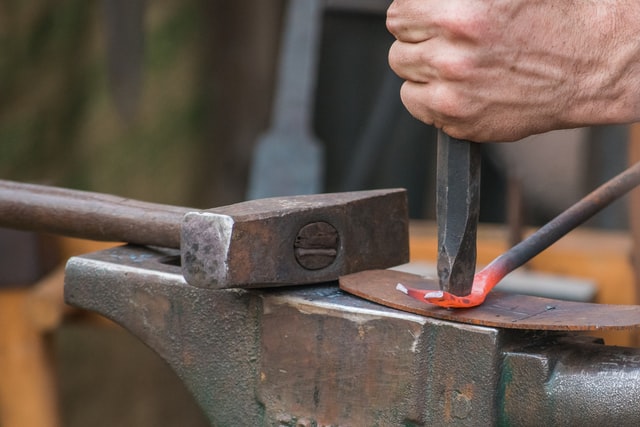
He was a strange figure, covered in a black cloak and hood. He almost seemed to stand in a dim spot of his own making, and Ward could not see any features of his face under the shadow of his hood. She just caught occasional glints of reflection where his eyes should be. Was he wearing mirrored goggles?
“Captain,” the man said quietly, “I recognize a smokescreen when I see it.”
“Yesss,” Solanio inserted himself, “I agree with the gentleman from Belmont. I’m certain that the Polity Navy does not have the resources to send a ship to every planet just for protection. Why have your generals sent you here? What could we have that you need?”
On the Naval Academy ship, she had learned the basics of government and politics. As an officer, she had studied rudimentary diplomacy. As a SEAL, she had studied how to destabilize governments and how to bolster them. Most SEALs were better with knives than words, but one lesson came to mind. In diplomatic situations, tell the truth when you can. And tell the truth when you must.
“Sirs, you are correct. While I have been sent to protect this planet from our enemies, I also have orders to protect and to collect resources to support the war.” There were mumbles, but they allowed her to continue. “Usually, taxes are collected in the form of Polity currency. I have been granted authority to forgive the 500 years of taxes due the Polity in return for full cooperation.”
The leaders exploded in a cacophony of epithets and strange phrases.
“Villains!”
“Dogs of war!”
“Freedom!”
“Domination!”
“False promises!”
Governor Octavius stood on a chair that could barely handle his weight. “You preach peace, but you mean domination. This is why we escaped the Polity! We must unite to fight this!”
Flavius, beside him, weakly shook his fist in the air, but he quickly jerked it down with a look from Ward.
Perhaps her greatest weapon was their disunity.
“Live free!” cried the Westminster delegate, but none of the others seemed ready to follow the Whitehall governor’s lead. Perhaps her greatest weapon was their disunity.
Taking a cue from Vernon, she banged the Lander’s hull with the tang of one of her knives, whipping it from concealment and returning it in one swift motion. The sound quieted most, but the eyes of those closest to her grew large at her expert handling of the knife, as well. There was diplomacy and there was diplomacy.
“There is no need to make any decisions tonight. I will visit each of your cities over the next few days. I will meet your leaders and answer what questions I can. Then I will begin a catalog of the planet’s resources. That will give each city time to meet, to vote, what-have-you, and make your decisions.”
“And what choice are you giving us?” asked Councilor Calpurnia from Finsbury.

Ward smiled. “I’m glad you asked.”
On cue, the back door of the Lander lowered and Ward led the way onto the grassy knoll. The night sky between the Lander and the city walls was filled with drones of all sizes. Glowing orange, they whizzed about madly overhead. The large, red Swearing Moon had circled the horizon during the day and hung just behind the city’s tallest skyscrapers, creating beautiful if ominous silhouettes.
“I’ve done some research on your home planet, the one your ancestors left. There was a tradition called Kite Day, where all the children flew paper cut-outs on the wind,” Ward said.
She did not know if this was true or not, but many cultures on many planets had a similar tradition. She had learned from Leonardo that the Globers had lived here 500 years and the space crossing had taken five generations, so she doubted they knew enough history of that last world to challenge her.
“The kites were flown as a symbol of peace and hope. So as a gift to the children of Whitehall, we purchased these drones. The children are flying them right now.”
“So many!” said Councilor Calpurnia.
“Costly,” said Westminster’s Eglamour. “And do the children get to keep the drones?” Ward could see calculation in his eyes.
“No, it’s part of a light show just for tonight,” Ward said. “Capt. Exeter of the U.P.S. Pacifica should be starting it any moment.”
Lasers struck from the sky. They touched the wildly flying drones, which exploded impressively in sparks and even gouts of flame. The Navy Gunner’s Mates could have destroyed all the drones in the span of five breaths, but they made a good show of it, drawing out the carnage for the count of one hundred.
When all the orange drones had been shot down, three remained. These were controlled by Ward’s Marines. They aligned and began flying in a huge circle between the Lander and the city, flying so quickly they formed three ribbons of light in the air. Red on top, then yellow, then blue. They matched the stripes on Ward’s sleeves. The colors of the Polity flag.
When the explosions ended, Ward could hear the claps and cheers from the distant city. The light show continued with fireworks from the city, mortars and even a cannon shot from the Lander, and more lasers from the Pacifica above.
Ward clapped and laughed when someone in the city even fired off some of the pulsar cannons.
The leaders around her stood stoic and unsmiling. The message, hidden in a light show for the children, had not been lost on them. There was no hiding from the power of the Polity Navy. They controlled space and now they controlled the Globe.
I hope you enjoyed my story. Feel free to share any comments below.
Make sure to check out the original, beautiful photos illustrating this story, and learn more about the photographers. A few photos may surprise you.
You can also enjoy the first five tales in the Globe Folio that lead up to Capt. Ward’s landing on the Globe:
Capt. Ward and the other characters you’ve met so far in the Globe Folio will return in even more stories soon. If you follow me on Twitter (@mattcrosswrites), you’ll see my announcements of new releases.
Be stellar!
Matthew Cross
P.S. Now you can enjoy the Globe Folio from the beginning:
Be stellar!
Matthew Cross

The Globe
[EDITORS NOTE: Below is the fifth of six stories set on a single planet but written by four authors. We will release one story each Friday. Please bear with this short introduction to the planet and the five cities. It will be worth it. I promise!]
On the planet simply known as The Globe, all the residents live along the Elizabeth River in or near one of the five nation cities. In the wilds in between live the beasts and the bandits, but under the protection of the five cities, the people prosper. Trade travels along the Elizabeth River. Except for the Seven Day War between Whitehall and Finsbury, there has always been peace. What more could one want?

Generations ago, their ancestors fled a war among the stars and settled The Globe. They dismantled their ships and built cities. Now, they only look to the stars to admire their cold, distant beauty.
So no one expected the descent of the rockets. Only those watching the night sky on that historic night saw the lurid, purple glare as the first rocket landed in a field near Whitehall. A night that would always be remembered as the “Night of the Rocket.”
The green-eyed farmers of Finsbury feed The Globe and furnish its timber from the rich bottomlands. Though spread far and wide, the brotherhood of Finsbury will band together to protect their lands from invaders, whether they be brigands or Whitehallers.
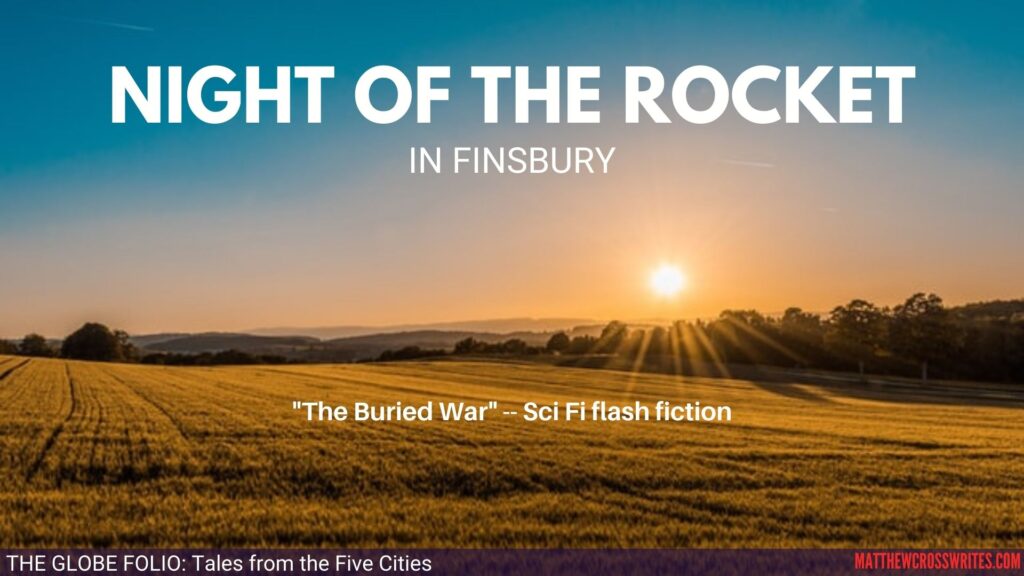
This story is set in Finsbury on the Night of the Rocket …
Panthino clambered gingerly down from the hovertractor.
He would have leapt if not for his exoskeleton legs. Built by Finsbury mechs, who usually built tractors and harvesters, they were large and heavy but surprisingly fragile. And he was a big guy, bigger even than most Finsbies. And he was still growing. He guessed that’s why his friends thought it was so funny to call him “Tiny-O” and sometimes just “Tiny.” Didn’t make sense to Panthino. The last part of his name was pronounced “theeno” not “thie-no” or “tie-no.”
But a lot about the world didn’t make sense to Panthino. Especially people. And most especially Desdemonia.
But Desdemonia never called him Tiny-O. She hardly ever said his name. But one time, when Lecter Gratanio was looking for a volunteer to paint props for the school play, she raised her hand. “Lecter, Panthino has a fair hand,” she said.
Panthino smiled in the darkness, lit only by the indirect lamps of the hovertrac. He did have a fair hand at drawing. He also had a fine hand at lettering, Ma said, especially for a boy. But no one needed drawing or lettering, not when you could find any kind of art you liked on Whitehall’s system.
His smile disappeared. He guessed Desdemonia was having fun at the Moon Dance in Southwark. Panthino had asked to attend her, but she had declined. “Oh, Panthino,” she had said, large green eyes shining, “I’m so sorry, but Gobbo already asked me yesterday. If I had known . . .”
Gobbo! Of course, it had been Gobbo. He had a way with the ladies. Panthino had been planning to ask Desdemonia for a week, but the time never seemed right. Finally, he had managed to wait for her along her path from school to home, positioning himself to stand casually beneath a tree, where she wouldn’t hear the straining servos in his legs as he walked.

He kept reliving the moment over and over, thrilled by the way her lips formed the sounds of his name and at the same time struck down by the rejection. And only a day late!
So he did not go to the dance. Instead, he stayed home by the hob, pretending to read a trac manual with a kittercat on his lap and one of the old hounds at his feet. Kittercats and hounds liked to sleep by the warm hob of a night.
And when the red sensor light clicked on, he had volunteered with relief to go check the faulty tiller, even though it was a bit late and the tiller was almost to the Forest of Arden. He should have been at the dance right now. He should have gone anyway. Ma said so. But he couldn’t stand the sight of Gobbo pressing tightly against Desdemonia. Gobbo was alright, but he liked all the ladies and he liked to get handsy with them. Panthino’s large hands clenched at the thought. If he had gone, he would have decked Gobbo during the first dance. He just knew he would have.
Panthino was not quick to anger. He never got in fights. He just let insults roll off his back. But when it came to Desdemonia, the strongest feelings just welled up inside him. So he filled the hovertrac’s cabin with the loudest, angriest Belmont chantrock he could find. Normally, he liked the pop stuff coming out of Whitehall’s discos, but tonight the last thing he wanted to hear was dance music.

What had he been thinking anyway? Asking Desdemonia, of all people—the smartest, most beautiful, most talented Desdemonia—to a dance! With his palsied legs and his lousy exoskeleton.
As he walked through the freshly tilled soil, sinking inches deep with each step, he shook his head, angry at himself. He was lucky to have these exo legs. Da worked hard managing three farms for the bank. It allowed Panthino to go to school full time. Not all his friends were so lucky. And Da made friends wherever he went, did favors for folks, and the village scratched together enough to buy the specialized parts the village mechanic could not find among his spare parts. Bassanio threw in the labor for free, saying he owed Da that and twice over. Panthino did not feel lucky, but he knew he was.
“Got food on the table and a roof over our head,” Da always said, looking at Ma across the table with a wink. “Not everyone in Finsbury has even that much. Be grateful, son. We’re lucky.”
Panthino deactivated the tiller with a remote. It had automatically shut itself off to preserve the motors, but better safe than sorry. Then he knelt down next to the tiller in the bright, bluish beams of the trac’s lamps. He felt the cool, damp soil beneath his knee, even though it could not penetrate the dun coveralls he wore. “Let’s see what’s wrong with you, shall we?”
It turned out the tiller had hooked on something deep in the soil. Panthino sat in the dirt and patiently began digging around the tiller’s curved blades with some tools from his belt. He mumbled and chanted his way through the last song that had been playing in the cab. With his tools, he clanged on the side of the tiller when he got to the part with the hammers-on-anvil part. Bang, bang, bang-bang-bang, bang! The Mounty kids were really into hammer-on-anvil percussion. Tonight, it suited his mood.
Old Man Moon worked his way across the sky as Panthino worked. He finally cleared all the dirt around the blades and then reached carefully into the hole for the rock the tine must have caught. His gloves would protect his hands from the sharp blades, but not his elbow or his shoulder. He found the obstruction, but it was not rock. It was smooth, cold metal.
What on the Globe?!
He leaned back and thought a bit. It felt like the curved blade was hooked under a … well, under a handle. But he knew that couldn’t be true. He shrugged. He needed to unhook the tiller and pull it from the hole. Then he could see what the tiller had tried to dig up.
Panthino knelt in the dirt. He settled his grip on the heavy tiller and blew out a breath. He really needed to be standing to get the right leverage, but he didn’t think his exoskeleton could handle the weight. Fortunately, his large chest and arms were as big and as strong as almost anybody else’s legs.
He did not heave it. The blade was lodged under the handle. He tried to just pop the tiller up, just a little bit, and jiggle it. It took several tries, but Da had always told him that machines were like women, they required a lot of strength and a lot of patience. So he was patient. After several tries, he felt it release and he hauled the tiller out of the hole. He was sweating, despite the cool night air, and his arms trembled a bit.
Da was right! He always was. A lot of strength and a lot of patience. Did that really work with women, he wondered. Would that work with Desdemonia?
He checked to make sure the blades were not damaged. Tiller blades were expensive. If they were damaged, the bank would make Da pay to replace them, even though he didn’t own the land. With the remote, Panthino marked off a couple metes around each side of the hole as “off limits” for the tiller, turned it back on and sent it off to work.
Still breathing heavily, he clicked on a light from his tool belt and shone it into the hole. What he saw shocked him to the core. Not only was there a handle, but also the wheel of a hatch.
He found himself staring blindly off into the darkness. Towards the Forest of Arden. Sitting in the beams from the trac, everything outside their sphere seemed like uniform darkness. But he knew the farm sat on the forest’s edge. Over the years, as city populations grew, his family and other farmers on the north side of the village had expanded their fields into what was once forest land. They still found artifacts from the Seven Day War—usually just burnt drone pieces —in the soil now and then. All the kids in the border region had a small collection of odds and ends, maybe in a box or hidden in a favorite spot. Some farmers even kept larger pieces in their barns to show off to guests.
At first, Panthino did not even relate the hatch to the ‘Hallers or the war. But his subconscious must have caught a whiff of something and set his eyes in the direction of the Forest of Arden. And kloms beyond the forest, Whitehall. What kind of ‘Haller war machine was big enough to need a hatch for a person? And how could such a large machine have gotten completely buried after the war?
With only a slight hesitation, Panthino reached down and spun the wheel. When it stopped, he turned the handle. Despite decades in the dirt, it moved smoothly. He lifted the hatch and caught a whiff of stale air.
Using his light to guide him, he carefully climbed down the metal ladder, raining down a small shower of dirt ahead of himself. In the strangeness of the moment, he missed the first hints. But he knew something felt wrong. The capsule was not large, just a long tube that formed a room half the size of the kitchen back home. The walls were filled with dusty shelves. In a step, he stood in front of a row of shelves. He wiped at the cobwebs with gloved hands and swiped awkwardly at the thick coating of dust.
Guns!
The walls were lined with loads and loads of guns. And not hunting guns like they took into the Forest of Arden in the fall with some hounds. These were weapons of war. But they were not ‘Haller weapons. They were Finsby made. He recognized the sturdy, craftsmanlike work. There was none of the lightness or finesse of Whitehall about them.
He should have known the moment he saw the hatch. It bore the same hallmarks of Finsby craftsmen.
And then the blinking yellow light caught his eye.
It blinked from the darkness of the far side of the capsule. It drew him. It felt like he was floating as he strode towards it, shining his light ahead of him, and everything slowed down. He cast off a dust-covered tarp. Gleaming beneath the tarp as if fresh from the workshop was a sleek, shiny tube sitting on a frame with three knobby tires. He gazed at in wonder—having no idea what he was looking at.
He looked around the room, as if it would provide a clue. He saw all the guns racked across every spare centi and then back at the weapon. For that’s what it was. What it must be.
A cannon!

Yes, some kind of newfangled cannon, maybe a force cannon or a plasma cannon. He shook his head. No, not newfangled. Old. Very old! Probably a relic from the Seven Day War. A secret Finsbury weapon that had never been used. And based on the blinking, yellow light, it probably still worked.
Shakily, Panthino climbed from the capsule. He wanted to get away from the cannon, from all the weapons. Who knew what would set them off?
He stood over the hole, thinking carefully. Those weapons were valuable. Even as old as they were, there was no tech in Finsbury like that, not that Panthino knew of. And that cannon thing. That was worth at least one of the farms Da managed, maybe worth all three farms.
And even half the guns down there would pay Whitehall surgeons to finally repair his real legs for good. He could walk and run and jump.
He could dance!
With fixed legs, he could court Desdemonia for real, not just for a pity date!
Breathing heavily, he shook his head.
He should get Da. He knew he should. And Da would tell the leaders in Southwark. And they would haul it away and … do what? The Southwark leaders were bankers, factors, merchants. With that lot, they’d probably sell it. To whom? Did it matter? It was their land, the bank’s and the factor’s anyway. They would claim it as their own. And give Da nothing.
Knowing the bank, they’d probably make Da and Panthino dig it up, the whole capsule, load it on a drone barge, and then pay them nothing. Panthino’s brow furrowed. Knowing those greedy bins, they’d threaten Da and Ma and Panthino, too, that if word got out, they’d lose their home. Tell the family they’d better keep quiet.
In anger, Panthino kicked dirt into the hole. He should just bury it. Bury it and forget about it. That would certainly be the best thing to do.
Then he heard a rumble overhead. He looked up and saw purple streaks across the sky.
I hope you enjoyed my story. Feel free to share any comments below.
Make sure to check back this coming Friday for the next flash-fiction story set on The Globe, where we finally reveal the mysterious crew of the rocket.
Finally, you can also enjoy the first four tales in the Globe Folio:
Be stellar!
Matthew Cross
P.S. Now you can enjoy the Globe Folio from the beginning:
Be stellar!
Matthew Cross

The Globe
[EDITORS NOTE: Below is the fourth of six stories set on a single planet but written by four authors. We will release one story each Friday. Please bear with this short introduction to the planet and the five cities. It will be worth it. I promise!]
On the planet simply known as The Globe, all the residents live along the Elizabeth River in or near one of the five nation cities. In the wilds in between live the beasts and the bandits, but under the protection of the five cities, the people prosper. Trade travels along the Elizabeth River. Except for the Seven Day War between Whitehall and Finsbury, there has always been peace. What more could one want?

Generations ago, their ancestors fled a war among the stars and settled The Globe. They dismantled their ships and built cities. Now, they only look to the stars to admire their cold, distant beauty.
So no one expected the descent of the rockets. Only those watching the night sky on that historic night saw the lurid, purple glare as the first rocket landed in a field near Whitehall. A night that would always be remembered as the “Night of the Rocket.”
The delta city of Newlondon is home to blue-eyed fishermen and The Globe’s finest sailors. They sail the South Sea and ply the Elizabeth River, carrying trade all the way to Belmont.
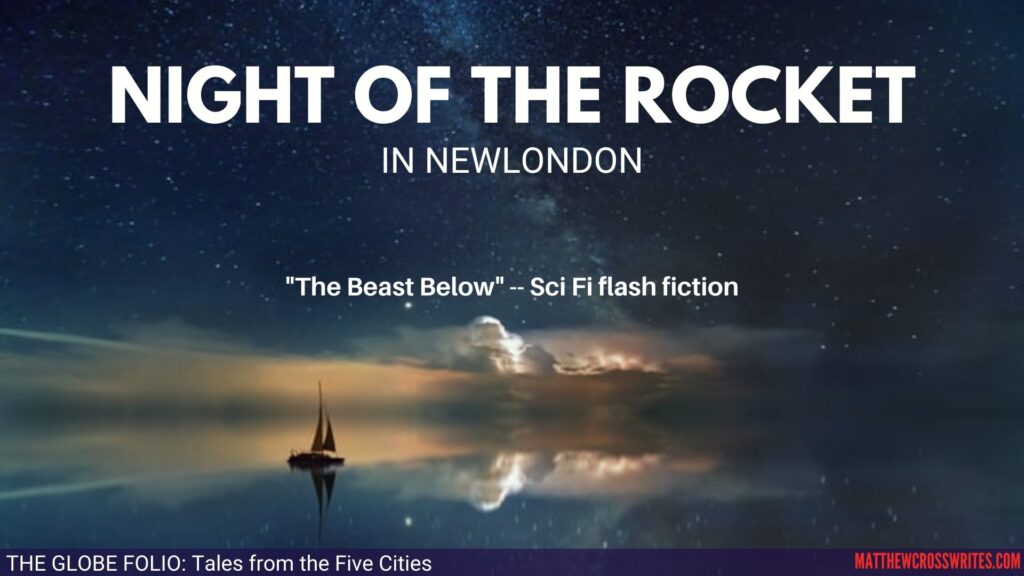
This story is set in Newlondon on the Night of the Rocket …
Death whispered in the waves as The Tempest left Newlondon behind. Water crashed up the boat’s side, spraying Antonio and stinging his eyes. He staggered across the deck.
Oars thrashed against the water as sailors battled the sea, their voices raised to the rhythm of their rowing. “Come face the beast from the deep below. Yo-ho-ho, row, nonny, row…”
The shadow of Newlondon’s harbor defenses disappeared in the fog shrouding the city, now a speck on the horizon, as the boat drew further into the ocean. On all sides, the open sea vanquished everything, including the death that lurked beneath the surface. The death that waits for me, Antonio thought.
“…Our eyes we’ll hide from the monster’s glow. Yo-ho-ho, row, nonny, row…”
This far from land, the ocean was no more than a grave. How many bodies lay buried on its bottom?
How did I get into this mess? Antonio scolded himself. Better yet, how do I get out of it?
“…Unfurl the sail, the ale will flow. With sharpened spear we’ll slay the foe…”
He toyed with the loose thread wrapped around his finger and closed his eyes. Images of Bianca flooded his mind. He forgot the salty tang filling his nostrils, pushed away the wind whipping his cheeks raw, lost to the memory as the sailors’ chant drifted into the distance.
“…And bring him home for a pot of gold. Yo-ho-ho, row, nonny, row.”

Bianca’s siren song pulled him deeper. “Oh, Antonio, I am forever yours. Yes!”
How was that only yesterday? Now I’m on this deathship?
On the harbor cliff, Antonio took her tender hand. Bianca beamed at the delicate piece of twine circling her ring finger, and the matching one around Antonio’s.
“Marry me, Bianca. I’ll take every trade run from here to Belmont to afford a ring. I promise to give you the life you deserve.”
Antonio and Bianca, intertwined, weaved a path through the harbor back to his scow, oblivious to the incessant crowing of the crews preparing ships for launch. The tall masts of larger trade vessels towered over their heads. Rigging and nets hung like tendrils of vines winding everywhere.
“Antonio! Will you not stop for your best friend?” a voice demanded from behind.
Antonio and Bianca whirled to see a panting Solanio chasing after them.
“Solanio?”
“I’ve only been trying to catch you from three docks over. The fog isn’t that thick today, mate.”
“Sorry, friend. I think we may have been lost in a fog of our own making.” Antonio smiled at Bianca.
“It’s the most marvelous day, Solanio! Antonio has asked me to be his wife.”
“Glorious news indeed,” Solanio kissed Bianca’s hand and eyed the twine on her finger. “But it’ll take a lot more than the measly trading runs you’re doing to give this woman the ring she deserves.”
Antonio caught the faint darkness clouding his friend’s eyes. “I’m due to make one of those measly runs right now, if you’ll excuse me.”
Bianca gave Antonio a sweet kiss of goodbye. Solanio and Antonio watched as she headed into the village, deftly avoiding the fallen ropes at her feet.
“Let me know when you want to make some real money, brother. You don’t want that one slipping away,” said Solanio.
“I’m not desperate for one of your schemes yet, Solanio. See you tomorrow.”
Antonio hopped aboard his scow. He started the engine sequence and secured the rest of his cargo before pulling away from his slip.
Antonio disengaged the maglock, pushing away from Whitehall’s dock.
One more stop in Finsbury, then back to my Bianca.
The thought warmed him like the sun reflecting off the looming towers across the marsh. Antonio pushed the throttle, he couldn’t wait to return to that gloomy, beautiful port, and to his love.
Thud!
“What the–”
Something landed on the deck behind him. Antonio spun straight into a punch, throwing him off-balance. The cloaked figure didn’t wait for Antonio to regain his senses, lunging for the cargo.
“No!”
Antonio jumped on the pirate, prying him off the hold. The bandit swung again. This time, Antonio dodged and returned a slug, inflicting a sickening crack to his attacker’s ribs. The pirate grabbed a hidden laser-edged knife and slashed toward Antonio.
Antonio grabbed his opponent’s wrists as they grappled on the deck. Forearms bulging, the pirate pressed the knife toward Antonio’s neck.
“Bianca!”
Antonio kicked his attacker, grabbed a rigging knife from his boot, and stabbed in one swift rush. The bandit fell back on the deck, motionless. Antonio’s heart pounded as he looked to the pirate and then to the blade he still held in his hands.
A whirl overhead caught his attention. A Whitehall drone circled, then zoomed back toward the city.
What have I done?
Antonio covered the body with a tarp and sped back to Newlondon in the growing darkness. When he arrived, he docked in the visitor moorings instead of his own slip. He stowed the knife back in his boot and ran to Solanio’s office in the harbor.
“Solanio, I need your help!”
“Brother, what happened?”
“A pirate attacked me. There was a drone. It happened so fast. What am I to do?”
“I know a place for you to hide while I take care of everything. Follow me.”

Solanio grabbed a chain of keys from the hook on his door and hastened to the harbor wall.
Antonio followed him through the fret that masked the city. The tang of fish stung the back of his throat, and voices from the market echoed in the distance above the cymbal-crash of waves. Fishing nets wove along the dock like cobwebs, and the salty fog surrounded the harbor’s defensive bastions.
“Over here.” Solanio stepped aboard a boat, fumbling with his keys. Antonio paused. Solanio unlatched a door. It swung open, leading below deck. “Antonio! What are you waiting for?”
“Bianca. They’ll come for her first. I need to get her out of—”
“Antonio. Listen to me. If the drone recorded you killing someone on the river, you need somewhere to lay low. Sea fret won’t keep you hidden long. Not from the drones.”
“But—”
“I’ll take care of Bianca. You have my oath.”
“You swear it?”
Solanio’s lips squirmed in an eel-like smile. “Leave her to me. She’ll come to no harm.”
Solanio grasped Antonio’s arm, compelling him into the cabin. Solanio closed the door, eclipsing Antonio in darkness. A click snapped through the lock. Antonio tried the handle, but it wouldn’t give.
“Solanio!” he cried.
His shoulder crashed against the bolted door. From beyond, voices and footsteps mingled, and the floor swayed with the familiar rocking that belongs to a boat on water. Antonio grabbed the knife from his boot and lit the blade. Its laser shimmered, revealing a hook and pole on the wall. Engines rumbled as he snatched the hook and fixed it on the door’s seam. He extinguished the knife, replacing it in his boot, and heaved. His sinews burned as he wrestled the latch over and over. All the while, the engine’s low murmur disguised his grunts.
Come on!
He threw himself upon the pole, wood splintering. The door split, sending Antonio stumbling onto the deck. Fog blanketed the ship. Through the mist emerged the captain’s hulking frame. His ice-blue eyes narrowed, and his lip curled into a smile as he stroked his beard and stomped towards Antonio.
“Well, well, well. What have we here? Looks like we’ve got ourselves a stowaway, lads!”
Antonio ran to the boat’s edge. Even at its widest stretch, he could swim the Elizabeth River without breaking a sweat.
“Where do you think you’re going?” the captain roared.
Antonio straightened up. “By how long we’ve been sailing, I reckon we must be near Westminster by now.”

The captain threw his head back. “Did you hear that, lads? This tar thinks we’re on the river!”
Crewmen howled, their laughs rippling across the deck.
The captain raised his hand, commanding quiet. “What’s your name, sailor?”
“Antonio.”
“Well, Antonio, welcome aboard The Tempest, the finest deathship this side of Belmont.”
Deathship! “You can’t be serious? We’re not—”
“Aye. We’re in open waters. Lads, kill the engines. Oars at the ready. If we’ve any hope of making it to the deep, we’ll need to run silent from here on out.”
Antonio’s mouth gaped open. “You’re a hunting ship?”
“That we are.”
“I never heard of a ship ever returning from a hunt.”
“We may make it back yet.” The captain winked. The engines’ rumble faded, and the ship lurched as it slowed.
Antonio scoured The Tempest for a way out. But all he saw was water and mist. “You have to turn around. I’m not supposed to be here.”
The captain shook his head. “You think any of us are supposed to be here? That any sane man would take on the hunt unless we weren’t up to our eyes in debt? Debt will drown you faster than the ocean, lad.”
“You mean—”
“If we return without a creature’s corpse, we’d be better off sunk. The only way I’m turning this boat around is with a kraken in tow. Y’hear?”
“But… it’s suicide.”
“That’s why they pay so much. Now, are you gonna grab an oar, or do I have to force you in the brig?”
Antonio shook his head. This can’t be happening. Solanio. You murderer.
The crew slung their oars over the side of the boat and cried out in song to the beat of their strokes.
“Come face the beast from the deep below. Yo-ho-ho, row, nonny, row.”

Antonio stroked the twine on his finger. He clasped his hands together, pretending it was Bianca’s, trying to remember the softness of her skin and push away the calluses of his own. He opened his eyes as The Tempest crested the waves.
A shudder rocked the boat.
“Hold, lads!” the captain bellowed.
The sailors lifted their oars, and a hush descended. Antonio turned his ear to the waves.
Another shunt wobbled the ship.
A chill shuddered through the breeze. Antonio stepped to the boat’s edge. He peered into the murky water, where a faint glow skittered across its surface.
A strange fluorescence lit the ocean, spreading, growing. It shone brighter still, and the water glistened in a deathly haze.
“Weapons at the ready!” the captain yelled.
Sailors manned the guns, replacing their oars with blaster rifles.

The light intensified, as if the whole ocean were on fire. Then the creature broke through the flames. Its first tentacle writhed up from the abyss, stretching taller than the masts that lined the port, and wide as the pulsar turrets guarding the Elizabeth river.
Another tentacle broke through the inferno, twice as big, and still another, before the body of the creature turned the light to shadow. It shrieked a wail as it towered over the boat. A thick hide menaced its skin with spikes, like a thousand harpoons encrusted with boils hard as steel. The underside of its tentacles emitted a blinding glow, and a single green eye cast a light on the boat bright as the lighthouse on East Cove.
If hell had a hide, it would have chosen this one.
The ship pitched and rolled as more tentacles wrapped around the gunwale. Men clutched their rifles, eyes wide in terror.
“Steady, lads! Fire when ready!” the captain commanded.
The first blasts struck the beast’s side. It shuddered and shook but did not retreat.
“It’s laughing at us.” Antonio’s voice was lost in the roar of the tossing and thrashing.
The captain growled, trying to match the leviathan, and charged across the deck. As he aimed his rifle, a gnarled tentacle flicked him overboard. Antonio covered his gaping mouth with his hand. He felt the twine on his finger.
Bianca. Bianca. Bianca.
The mantra fueled Antonio into action.
“Aim at the eye! Don’t waste time on its hide.”
Half the men obeyed while the rest were either huddled crying for their mothers or frozen in panic. Rifle blasts battered where it’s face should be, though there was no sign of a mouth.
“Keep going, men! Blind the beast!”
In a rage, the creature slammed its body onto The Tempest’s deck. The shockwave flung most of the sailors to their watery graves. Those who braced themselves continued their attacks. Antonio searched frantically for a gun. Gobs of neon green littered the deck. The only thing he could grasp was the hook and pole he’d escaped the cabin with. Antonio secured his knife to the hook. He engaged the laser and faced the beast.
A shot landed squarely in the creature’s eye. It released an ear-piercing cry as its face split, revealing its cavernous maw. Spiraling rows of teeth vibrated from the roar, like tiny saw blades waiting to hack its victims. A vicious emerald light emanated from its throat, hypnotizing the other men. Antonio seized his chance and dodged the lacerating teeth, thrusting the makeshift harpoon deep into the roof of the glowing deathtrap.
“BIANCA!”
He sunk the knife, pulling the blade straight through the creature’s lantern eye, and sending it flying onto the deck. Brains and flesh rained down as the creature thrashed its last. Green ooze dripped from Antonio. The kraken’s eye stared at him from his feet, until its glow extinguished. The monster stilled, collapsed over the boat, almost bringing it under with its weight.
Antonio’s chest heaved. The creature’s stink invaded his nostrils, and he spat its bitterness from his mouth. He pocketed his knife and wiped the stain of the beast from his body.
It’ll take more than that to get rid of me, Solanio.
A violet hue danced across the waves.
Antonio grabbed an oar, and plunged it into the water, tugging with all his might. The few remaining sailors pitched their oars alongside him. His fingers wrapped around the wood so tight, it pressed the twine into his flesh, but all he could do was smile.
I’m coming, Bianca. Wait for me.
Then a faint glow shot across the surface of the water. He stopped rowing and craned his neck over the ship’s edge. A violet hue danced across the waves.
No. Not another. It can’t be.
He grabbed his blade and stood, calling out to the water.
“You can’t have me! I won’t let you!”
The glow intensified and the ocean lit up. But no creature emerged.
“Come on! Show yourself!”
He waited, but there was no beast. Only light. And then he looked up, towards the sky, where the same glow shimmered even brighter.
If you enjoyed Frasier and Shanel’s story, please share some kind comments below.
Make sure to check back this coming Friday for the next flash-fiction story set on the Globe, “The Buried War” by Matthew Cross. Set in the city of Finsbury, it’s filled with longing, regret, and a buried secret.
Be stellar!
Matthew Cross
P.S. Now you can enjoy the Globe Folio from the beginning:
Be stellar!
Matthew Cross